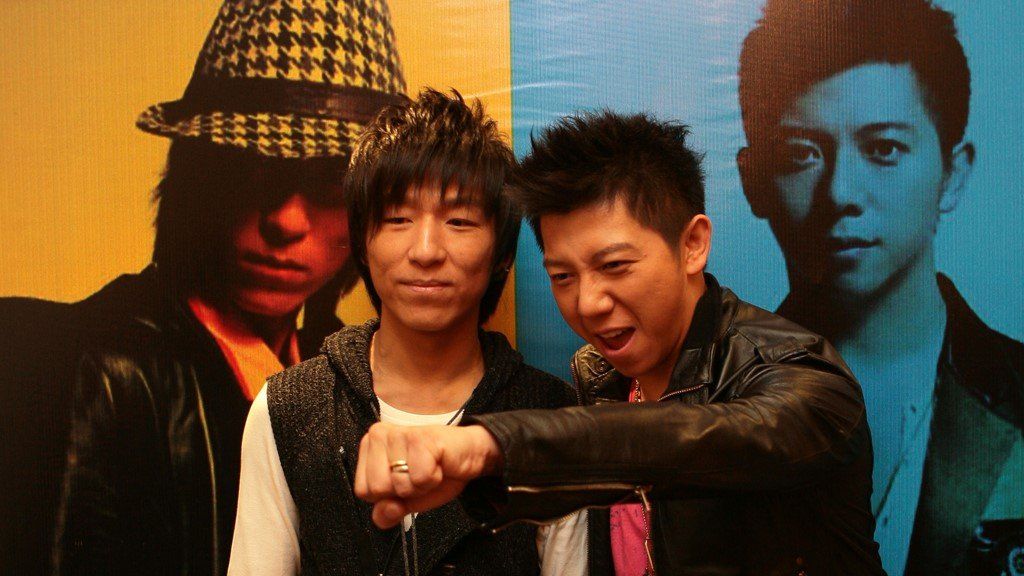China's music listening habits revealed
- Published

More than 977 million people in China - 72% of the population - listen to music every week, according to a new survey of the country's listening habits.
The average Chinese consumer enjoys 16 hours of music per week, with 66% of listeners using a streaming service.
It lags behind the US, where 91% of the population listens to music every week, and the UK, where the figure is 85.5%.
But China has a healthy live scene, with 57% of affluent fans attending concerts, compared to 51% in the US.
The figures, compiled by US company Nielsen, show a great disparity between wealthy Chinese consumers and those on lower incomes.
In total, 83% of affluent consumers listen to music at least once a week; compared to 53% for low-earners.
The well-off tend to prefer Western or English-language music, and are more likely to listen to pop, rock and jazz.
They spend an average of 914 yuan ($139, £97) on music every year; while poorer Chinese consumers spend just 118 yuan ($18, £13).
Nielsen projected that spending on music would increase over the next decade - with overall consumer spending expected to reach $56 trillion (£39 trillion) driven largely by young, affluent, connected consumers with disposable incomes.
However, piracy remains a major barrier. Just 3% of low-income consumers said they would be "very likely" to pay for a streaming service in the future.
The findings will be read with interest by record companies in the West, who are increasingly looking to China to offset falling revenues at home.
Once largely closed to foreign music, the country has gradually loosened restrictions and emerged as a crucial territory for bands of all sizes.
Wham! made headlines 31 years ago by becoming the first Western band to play in Beijing and the southern city of Guangzhou; and as recently as 2002, a concert by Kenny G was considered big news.
Now Chinese cities frequently turn up on the touring itineraries for a range of acts. Taylor Swift, Bob Dylan, Robbie Williams, Bon Jovi, Michael Buble and Ellie Goulding have all played there in recent years.
But booking a show in Shanghai is not without its pitfalls.
Before foreign artists can perform, the culture ministry runs background checks and pre-approves set lists. In 2006, the Rolling Stones were told to drop five songs - including Honky Tonk Woman and Let's Spend the Night Together - because of their suggestive lyrics.
"Fortunately, we have 400 more songs that we can play so it's not really an issue," said Mick Jagger.
Other artists have been banned completely. Jay-Z had permission for a 2006 concert turned down because of his "vulgar lyrics"; while Kraftwerk were denied Chinese visas because they had been slated to perform at a pro-Tibetan independence concert in 1999 - even though the appearance was eventually cancelled.
Sir Elton John also attracted disapproval when he dedicated his 2012 concert in Beijing to the artist and activist Ai Weiwei.
He received a visit from police, while the state-run newspaper Global Times said the singer was "disrespectful" when he "forcibly added political content to the concert".
"If they had known that this concert would be dedicated to Ai Weiwei, many in the audience would not have come," it said.
- Published9 April 2015
- Published13 March 2008
- Published2 March 2009